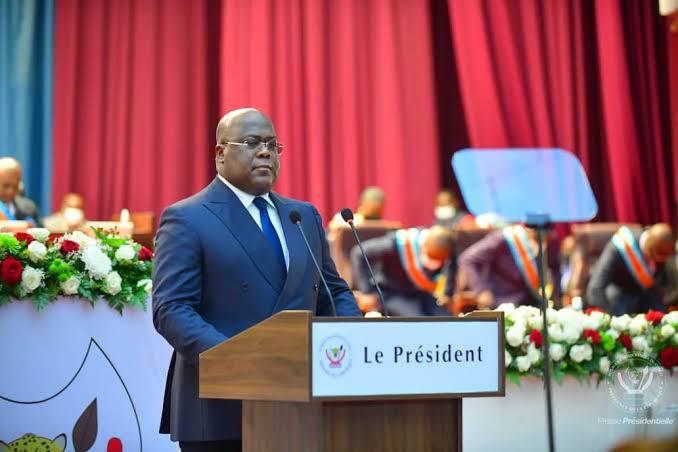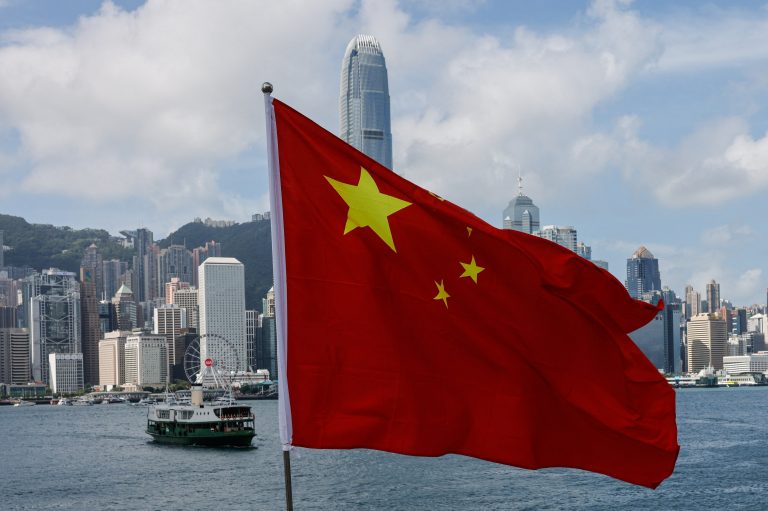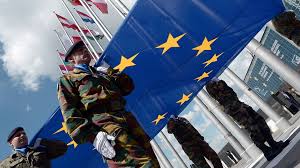
Félix Tshisekedi’s 2025 New Constitution Proposal: A Game-Changer for the DRC or a Power Grab in Disguise?
I. Introduction
President Félix Tshisekedi’s administration has reportedly signalled the ambition to draft a new constitution for the Democratic Republic of Congo (DRC) in 2025. Although official details remain scarce, the mere possibility of a new foundational law for a country of approximately 100 million people (United Nations, 2023) has stirred excitement, debate, and curiosity both domestically and internationally. Since 2006 (when the current Constitution, adopted in 2005, came into effect), the DRC has endeavoured to rebuild its governance structures following decades of political turmoil, widespread conflict, and economic instability. Creating a new constitution might be viewed as another step—potentially a giant leap—towards addressing socio-economic challenges, consolidating democracy, and advancing a new vision for Congolese statehood. Yet questions linger: What might such a new constitution look like, and how would it help transform the DRC?
In this research document, we explore why President Tshisekedi might contemplate constitutional change, the possible substance of that reform, and how it could benefit (or unsettle) Congolese society. To achieve this, we draw on a variety of perspectives—ranging from legal scholars in Kinshasa, civil society representatives in Goma, to international human rights bodies—to maintain objectivity and to foster a balanced examination.
II. HISTORICAL OVERVIEW
1. The 2005 (Revised 2011) Constitution
The existing Congolese Constitution was enacted in 2005 and revised in 2011, amid fervent political negotiations that sought to end years of conflict. It introduced multi-party democracy, established a bicameral Parliament, and recognised civil and political rights. For many Congolese, the new constitution was a beacon of hope, aiming to address the injustices triggered by decades of turmoil. Provisions such as Articles 5 (on sovereignty belonging to the people), 10 (clarifying Congolese nationality as exclusive), and 220 (the ‘entrenched clause’ that prohibits altering the republican form of the State and term limits) represent some of the critical pillars.
2. President Félix Tshisekedi’s Tenure
Félix Tshisekedi assumed office in January 2019 in a largely peaceful transition of power—remarkable in a country where transitions have historically been marred by violence. Early in his tenure, Tshisekedi pledged to fight corruption, strengthen institutions, and restore internal stability (Office of the President, 2020). Despite notable successes—such as improved relations with certain international partners—challenges persist: armed groups remain active in eastern provinces, corruption ranks high (Transparency International, 2022), and public spending on healthcare and education lags behind regional averages (World Bank, 2023). A robust constitutional overhaul, in the eyes of Tshisekedi’s administration, may serve as an anchor to accelerate institutional reforms.
III. WHY A NEW CONSTITUTION?
1. Addressing Legacy Gaps
The current constitution, while providing a framework for democracy, has faced criticism for certain ambiguities. For instance, the distribution of powers between the central government and provinces (Articles 201-205) remains convoluted in practice, hindering effective decentralisation. Critics argue this has contributed to governance inefficiencies and complicated the smooth functioning of local authorities. A new constitution could refine such provisions, clarifying jurisdictions and possibly reducing tensions over resource allocation, a key driver of conflict in resource-rich provinces.
2. Strengthening the Rule of Law and Institutions
Although the DRC Constitution safeguards judicial independence (Articles 149-151), entrenched issues of corruption, political interference, and a lack of infrastructural support undermine the judiciary’s effectiveness. A constitutional revision might shore up judicial autonomy and accountability, introducing more robust checks on executive overreach. This prospect is particularly relevant given the DRC’s ongoing struggle to attract foreign investment and deliver impartial justice in cases involving natural resources.
3. Revisiting Term Limits and Presidential Powers
Article 220 explicitly bars any revision concerning the number and duration of presidential mandates. Yet speculation abounds that a brand-new constitution could circumvent these entrenched clauses, extending or resetting limits. If so, it would be a contentious move, prompting concerns about potential authoritarian drift. Proponents, however, say that clarifying provisions on presidential succession—especially in times of crises—might strengthen political stability, as well as reduce uncertainty that has historically fuelled conflict.
4. Facilitating Economic Reforms
The DRC’s economy continues to rely heavily on mining; official data suggest the sector accounts for over 25% of GDP (World Bank, 2023). A constitutional update could enshrine more stringent guidelines on transparency in extractive industries, further compelling both domestic and foreign mining firms to comply with anti-corruption regulations. Such an approach may harness the country’s abundant natural wealth for broader socio-economic development.
IV. POTENTIAL KEY REFORMS IN A NEW CONSTITUTION
1. Enhanced Decentralisation Framework
○ Provincial Autonomy: New articles could specify the budgetary contributions guaranteed to provinces beyond the 40% retention mandated by the current Constitution (Article 175). This might ensure that local authorities are better equipped to provide essential services, from healthcare to infrastructure development.
○ Provincial Judicial Powers: A direct evolution would be more clarity regarding provincial courts and tribunals. Critics have noted that complicated overlaps with the central judiciary hamper local dispute resolution.
2. Strengthening Human Rights and Gender Parity
○ Expanded Protections: The DRC’s existing Bill of Rights (Articles 11-61) is robust, at least on paper, but lacks rigorous enforcement. A new constitution could incorporate stricter implementation mechanisms, reinforcing commitments to gender equality (Article 14) and addressing sexual violence (Article 15).
○ Stricter Accountability for Violations: Additional clauses could mandate local-level accountability committees, tasked with investigating and reporting rights violations, to keep the government in check.
3. Clarified Separation of Powers
○ Curbs on Presidential Discretion: A new constitution might introduce new thresholds or oversight procedures when the president dissolves Parliament or declares states of siege (Articles 85, 144). By requiring multi-institutional sign-off, it could prevent potential abuses of power.
○ Revisions to Legislative Oversight: Parliament’s control and budgetary oversight may be broadened, compelling the executive to provide comprehensive documentation of public finances and making no appropriation possible without legislative scrutiny.
4. Robust Anti-Corruption Measures
○ New Supervisory Bodies: The constitution might enshrine an Anti-Corruption Commission with prosecutorial powers, or formalise deeper alliances with institutions like the Court of Accounts (Article 178).
○ Public Declaration of Assets: Existing constitutional clauses (Article 99) require officials to declare their assets, but enforcement has been weak. Constitutional improvements could make non-compliance subject to immediate removal from office or stiffer criminal sanctions.
5. National Dialogue and Conflict Prevention
○ Council for Peace and Security: A new constitution might introduce a permanent consultative body bridging the central government, provincial authorities, and civil society for conflict resolution—particularly critical given the persistent violence in provinces like North Kivu and Ituri.
○ Rights of Marginalised Communities: The draft could embed robust clauses ensuring equal representation of all ethnic groups in national institutions, building upon Article 51 on minority protections.
V. POTENTIAL BENEFITS AND CHALLENGES
1. BENEFITS
○ Reinvigorating Political Trust: By enshrining stronger checks and balances, the new constitution could revive trust in institutions. A 2022 survey by the Congo Research Group indicated that 60% of respondents felt disconnected from governance processes. Concrete constitutional reforms might counteract such disillusionment.
○ Social Cohesion: Clearer protections for vulnerable groups and an emphasis on inclusive growth could spark unity in a diverse nation that, historically, has wrestled with regional and ethnic tensions.
○ Economic Boost: Heightened legal transparency can attract foreign direct investment (FDI). The DRC’s wealth in cobalt and copper is of global interest; a stable constitutional environment might reduce investors’ risk perception.
2. CHALLENGES
○ Risk of Political Manipulation: Critics warn that a wholesale re-writing might be used to reset presidential terms, thereby extending Félix Tshisekedi’s hold on power. This echoes controversies around previous attempts at constitutional manipulation under past regimes.
○ Financial and Logistical Hurdles: Drafting and ratifying a new constitution is not just a legal endeavour but also an administrative one. Holding a constitutional referendum and widely publicising the new text requires substantial resources—no small feat in a nation contending with a fragile economy and conflicts in its eastern territories.
○ Potential For Wider Unrest: Any real or perceived attempt to consolidate power at the expense of democratic principles could ignite opposition protests. Civil society organisations have emphasised the need for broad-based consensus and inclusivity in the drafting process.
VI. REACTIONS FROM VARIOUS STAKEHOLDERS
1. Civil Society and Religious Groups
Organisations like the Catholic Church’s Episcopal Conference (CENCO), historically influential in mediating political crises, have stated that any reforms must reflect citizens’ will and not threaten constitutional term limits. They urge broad consultation, from the capital city of Kinshasa to rural communities.
2. Opposition Parties
Multiple parties are cautious, pointing out that if the constitution simply redefines presidential powers to Tshisekedi’s advantage, trust in democratic processes would deteriorate. They advocate for inclusive dialogue, warning that any unilateral drafting process might reignite political tensions.
3. Regional and International Observers
The African Union, the European Union, and the United Nations Missions in the DRC (MONUSCO) are likely to follow the developments closely. They could offer technical or financial support but also demand that the final text uphold universal democratic standards and human rights obligations.
VII. CONCLUSION
The idea of crafting a new constitution for the Democratic Republic of Congo in 2025 is, without question, bold and fraught with complexities. From reinforcing judicial independence to clarifying power-sharing arrangements and embedding stronger anti-corruption frameworks, a fresh constitutional chapter may be a potent tool for transforming governance and nurturing a more inclusive society. But the devil lies in the details: if poorly executed or driven by self-serving political agendas, the proposed changes could exacerbate existing fault lines, sow public distrust, and even trigger renewed conflict.
In a nation that has endured one of the world’s most protracted humanitarian crises—leading to an estimated six million conflict-related deaths since the late 1990s (International Rescue Committee, 2020)—the emotional stakes are extraordinary. It is thus incumbent upon President Tshisekedi and all Congolese stakeholders to draft a constitution that uplifts the people’s aspirations for stability, justice, and prosperity. The process must be broad-based and transparent, inviting voices from civil society, youth activists, religious leaders, and grassroots communities to shape a charter that truly reflects the DRC’s mosaic of identities.
In moments of doubt, wow, one might recall that the DRC—despite the heartbreak of its tumultuous past—possesses immense untapped human and natural resources. A new constitutional framework, if meticulously constructed, could harness these assets to propel the DRC towards a peaceful, equitable, and dynamic future. And, crucially, it would signal to all Congolese—whether in Kinshasa, Lubumbashi, or Bukavu—that their voice matters, their rights are protected, and that they can finally look towards a horizon free from the looming shadow of past injustices.
While the road ahead will likely be challenging, an honest, caring, and ambitious approach to constitution-building could represent the spark the DRC needs to heal old wounds, safeguard freedoms, and deliver tangible change to its citizens. Ultimately, the success of such a constitutional project depends on the collective will: it rests on the shoulders of Congolese leaders, civil society, and the international community to ensure it is guided by truth, shaped by empathy, and empowered by the people’s demand for justice and opportunity. May this prospective constitution be not just another legal text but a heartfelt testament to a nation’s undying hope for a brighter tomorrow.
Aric Jabari is the Editorial Director of the Sixteenth Council.



